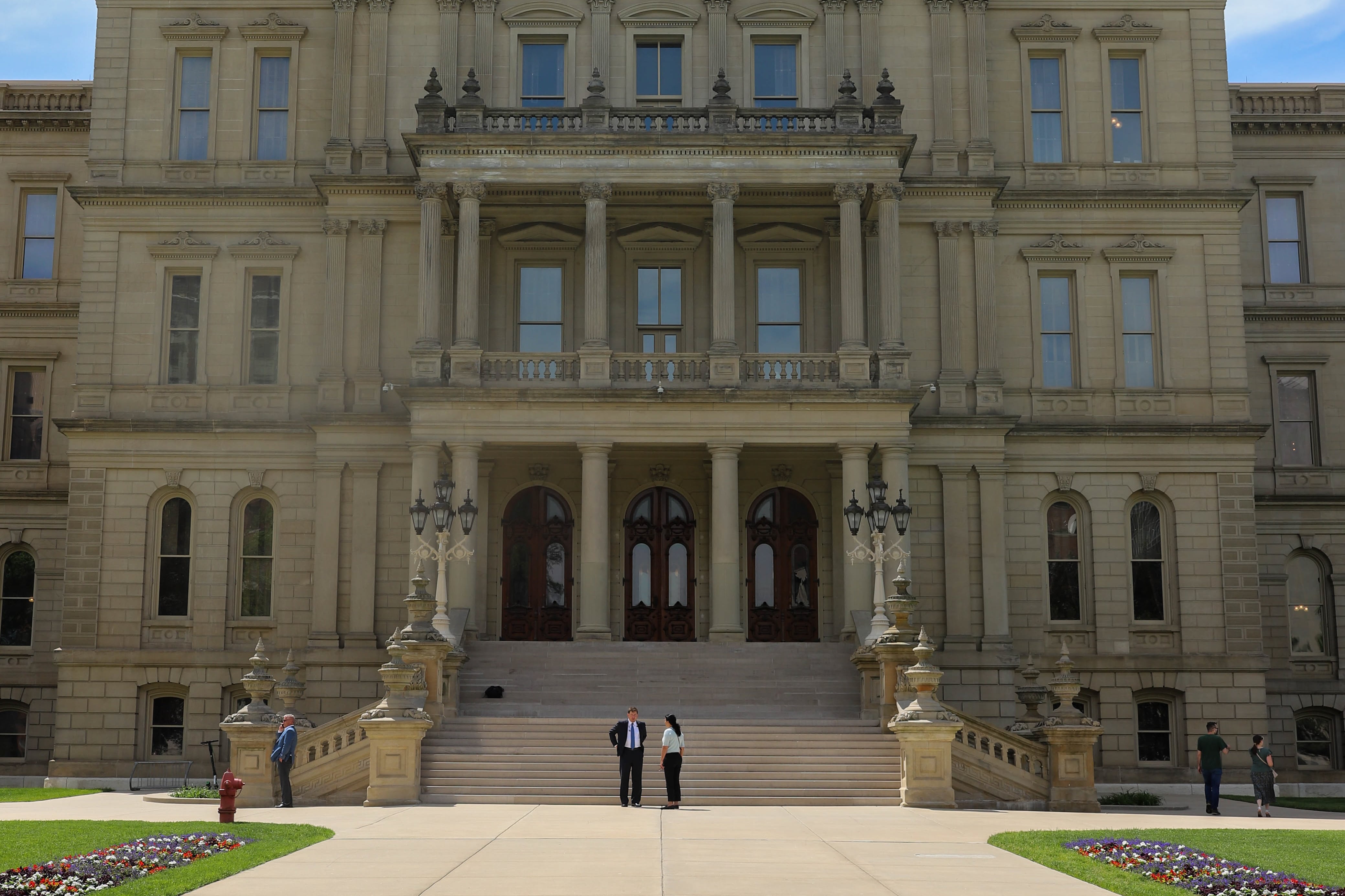Michigan lawmakers advanced legislation Tuesday that seeks to address school staffing shortages by allowing retired public school teachers to return to the classroom immediately without forfeiting their pensions.
Under current law, retired teachers must wait at least nine months before taking jobs in the public school system if they want to continue collecting their retirement benefits.
The measure that cleared the Michigan Senate Education Committee unanimously Tuesday would allow those retired from the public school system to come back and earn up to $15,100 within a six-month period, while still receiving their pensions and subsidies for healthcare benefits. After that, teachers would be able to negotiate their salaries with school systems.
The changes would be in effect for five years — by which time school leaders hope that new grow-your-own workforce development programs will produce more educators and ease the teacher shortage.
Under the bill, retired superintendents would not be allowed to return to work in public schools as superintendents.
“It’s not perfect — it’s far from it,” Robert McCann, executive director of the K-12 Alliance of Michigan, said of the bill. “But it makes the law better, and it will be helpful for us.”
McCann said he has heard from superintendents across Michigan who say they are still having trouble filling open jobs weeks into the new school year.
“Michigan is the only state I know of that has an arbitrary nine-month sit-out,” said McCann. “It puts us at a disadvantage. The reality is we are opening schools this year with dozens of unfilled positions we are desperate to fill.”
The Senate committee votes Tuesday were on substitutions to House Bill 4752. Those changes will now go back to the House for a vote.
An earlier version of the bill, passed by the House in June, retained the nine-month waiting period, but allowed retirees to return to work during that time and make up to $10,000.
The teacher shortage is an issue many districts in the state are facing, said Rep. Matt Koleszar, a Democrat from Plymouth who introduced the legislation in the House.
The retiree bill is “another way where we can attack this shortage,” said Koleszar, chair of the House Education Committee.
The state is investing millions of dollars in teacher development programs that will launch this fall in an effort to attract more talent to the profession amid a shortage of qualified applicants. Graduates of those programs won’t be ready to become full-time educators for several years.
“This is a temporary solution to a problem we wish we didn’t have but believe it’s necessary in the times now so we can staff our classrooms with the best professionals, the most highly trained professional that we can,” Eric Edoff, superintendent of L’Anse Creuse Public Schools, said of the bill during committee testimony.
The nine-month waiting period in the current law was created in 2010 to discourage “double dipping” by high-paid administrators who could retire and immediately return to work to receive both a pension and a salary. The law lets retirees return after nine months, and earn a salary without limits, without giving up their pensions.
Hannah Dellinger is a reporter for Chalkbeat Detroit covering K-12 education. Contact Hannah at hdellinger@chalkbeat.org.






